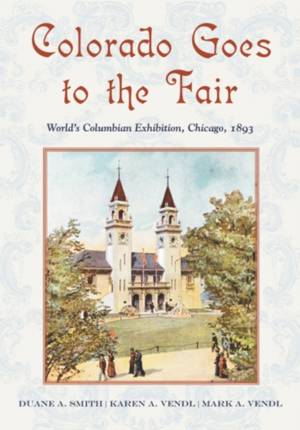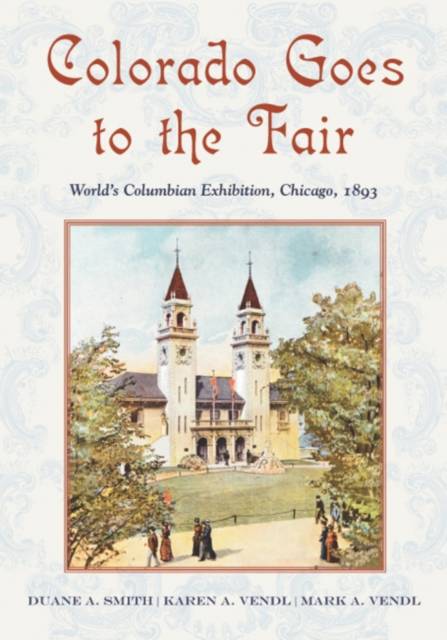
- Retrait gratuit dans votre magasin Club
- 7.000.000 titres dans notre catalogue
- Payer en toute sécurité
- Toujours un magasin près de chez vous
- Retrait gratuit dans votre magasin Club
- 7.000.000 titres dans notre catalogue
- Payer en toute sécurité
- Toujours un magasin près de chez vous
Colorado Goes to the Fair
World's Columbian Exposition, Chicago, 1893
Duane A Smith, Karen A Vendl, Mark A VendlDescription
In many ways, the 1893 World's Columbian Exposition in Chicago, more popularly known as the Chicago World's Fair, symbolized the American people's belief that today's glory and tomorrow's future rested with them, their country, and their democracy. A six-month extravaganza of education, entertainment, and amazement, it sparkled in the daytime and emerged at night, seductive and enchanting.
The Fair aroused patriotism, pride, and a sense of achievement in almost all Americans, yet 1893 proved a troubling year for the United States, and for the young state of Colorado in particular. The repeal of the Sherman Silver Purchase Act created labor tension in the Colorado mines and contributed to a devastating national depression that would have a lingering impact on Colorado for years. In this heavily illustrated text, the authors trace the glory of the World's Fair and the impact it would have on Colorado, where Gilded Age excess clashed with the enthusiasm of westward expansion.
Spécifications
Parties prenantes
- Auteur(s) :
- Editeur:
Contenu
- Nombre de pages :
- 192
- Langue:
- Anglais
Caractéristiques
- EAN:
- 9780826350411
- Date de parution :
- 16-09-11
- Format:
- Livre broché
- Format numérique:
- Trade paperback (VS)
- Dimensions :
- 175 mm x 251 mm
- Poids :
- 317 g







